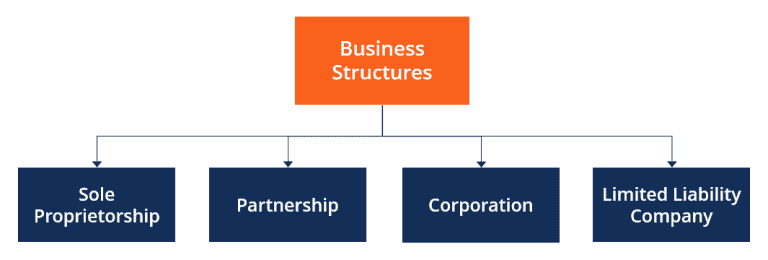Starting an Amazon FBA business without the right legal structure is like driving without insurance—you’re one lawsuit away from losing everything you’ve worked for. If you’re a digital entrepreneur, remote founder, or location-independent professional looking to build a sustainable Amazon FBA business, forming a Limited Liability Company (LLC) isn’t just recommended—it’s essential for protecting your personal assets and maximizing your business potential.
This comprehensive guide will walk you through everything you need to know about Amazon FBA and LLC formation, from understanding the benefits to completing the registration process step-by-step. Whether you’re just starting out or looking to restructure your existing Amazon business, this guide provides the roadmap you need for success in 2025.
What is Amazon FBA and Why Does It Matter for Digital Nomads?
Amazon FBA (Fulfillment by Amazon) is a service where Amazon stores your products in their fulfillment centers, handles all customer orders, manages shipping and returns, and provides customer service on your behalf. For digital entrepreneurs and remote workers, this model offers the perfect hands-off approach to e-commerce.
When a customer places an order, Amazon picks, packs, and ships your product directly to them. This means you can run your business from anywhere in the world while Amazon handles the logistics. It’s particularly attractive for digital nomads who want to build passive income streams without being tied to inventory management or shipping logistics.
However, as your Amazon FBA business grows, operating as a sole proprietor becomes increasingly risky. Product liability issues, customer disputes, and business debts can all threaten your personal assets. This is where forming an LLC becomes crucial for long-term business protection and growth. Learn more about the benefits of registering your business for additional insights.
Understanding LLCs: The Perfect Business Structure for Amazon FBA
A Limited Liability Company (LLC) is a business structure that combines the liability protection of a corporation with the tax flexibility and simplicity of a sole proprietorship. For Amazon FBA sellers, an LLC creates a legal barrier between your personal assets and business operations. The U.S. Small Business Administration provides detailed guidance on different business structures and their benefits.
Key Features of an LLC
Limited Liability Protection: Your personal assets—including your home, car, and bank accounts—are protected from business debts and legal claims against your Amazon FBA business.
Pass-Through Taxation: Unlike corporations, LLCs avoid double taxation. Business profits and losses flow directly to your personal tax return, potentially qualifying for the 20% pass-through deduction under current tax law.
Operational Flexibility: LLCs have fewer formal requirements than corporations, making them easier to manage while traveling or working remotely.
Credibility: Operating as an LLC enhances your professional image with suppliers, customers, and potential investors. For detailed comparisons of business structures, visit the SBA’s business structure guide.
Why Your Amazon FBA Business Needs an LLC: 8 Critical Benefits
1. Asset Protection That Actually Works
Product liability lawsuits are common in the United States, and an exposure marketplace like Amazon might attract lawsuits and criticism. When you operate as an LLC, only your business assets are at risk if someone sues your company over a defective product or other business-related issue. Your personal savings, real estate, and other assets remain protected.
Consider this scenario: A customer claims your product caused injury and files a lawsuit seeking $500,000 in damages. Without an LLC, they could potentially seize your personal assets to satisfy any judgment. With an LLC, they can only pursue business assets, protecting your personal wealth.
2. Enhanced Professional Credibility
Most customers prefer purchasing products from companies with business names. An LLC gives your Amazon FBA business a professional identity that builds trust with customers, suppliers, and potential business partners. This credibility can directly translate to increased sales and better wholesale pricing from suppliers. BusinessAnywhere’s registered agent services can further enhance your professional appearance.
3. Tax Advantages and Flexibility
LLCs offer several tax benefits for Amazon FBA sellers:
- Pass-through taxation eliminates corporate tax rates
- 20% pass-through deduction available for qualifying businesses
- Choice of tax election (sole proprietorship, partnership, S-Corp, or C-Corp)
- Business expense deductions for legitimate business costs
LLC owners can opt for S Corporation tax status, potentially offering more tax advantages by splitting income between salary and distributions, which can result in significant payroll tax savings.
4. Simplified Business Banking and Finances
An LLC allows you to open dedicated business bank accounts, making it easier to:
- Track business income and expenses
- Prepare for tax season
- Maintain clear financial records
- Build business credit history
- Qualify for business loans and credit cards
5. Operational Flexibility for Remote Entrepreneurs
LLCs have fewer formalities than corporations, making them perfect for digital nomads and remote workers. You can manage your LLC from anywhere in the world without complex board meetings or extensive paperwork requirements.
6. Easy Addition of Business Partners
As your Amazon FBA business grows, you might want to bring in partners or investors. LLCs make this process straightforward through operating agreements that clearly define:
- Ownership percentages
- Profit and loss distribution
- Management responsibilities
- Decision-making processes
7. Protection from Amazon Policy Changes
Amazon regularly updates its policies and fee structures. An LLC structure helps insulate your personal finances from sudden changes that might impact your business cash flow or profitability.
8. Investment and Exit Strategy Opportunities
Investors and potential buyers prefer dealing with formal business entities. An LLC structure makes your Amazon FBA business more attractive for:
- Angel investors
- Venture capital funding
- Business acquisitions
- Strategic partnerships
Best States for Amazon FBA LLC Formation in 2025
Choosing the right state for your LLC formation can significantly impact your taxes, compliance requirements, and overall business costs. Here are the top options for Amazon FBA sellers:
Delaware: The Premium Choice
Benefits:
- World-renowned business laws and court system
- Investor and lender credibility
- Easy conversion to corporation if needed
- Strong privacy protections
Costs:
- $110 formation fee
- $300 annual franchise tax
- Registered agent required (~$100-200/year)
Best for: Businesses planning to seek investment or scale significantly
Wyoming: The Tax-Friendly Option
Benefits:
- Zero personal income tax and very low sales tax (4% or 0% depending on product type)
- $60 annual fee (lowest in the US)
- Strong privacy protections
- Allows non-resident formation
Drawbacks:
- No Amazon fulfillment centers in Wyoming
Best for: Privacy-focused entrepreneurs and high-margin businesses
Nevada: The Privacy Haven
Benefits:
- No state income tax
- Strong privacy protections
- Business-friendly regulations
Drawbacks:
- $350 annual fees
- Some payment processors flag Nevada entities
Best for: High-privacy requirements and established businesses
Texas: The Practical Choice
Benefits:
- Amazon’s gargantuan FTW1 facility basically guarantees physical nexus
- No franchise tax for businesses under $2.47 million revenue
- Strong business infrastructure
Costs:
- $300 formation fee
- Minimal ongoing costs for small businesses
Best for: High-volume sellers with significant inventory
Your Home State: Often the Best Starting Point
For most new Amazon FBA sellers, forming in your home state offers several advantages:
- Lower compliance costs
- Simplified tax filing
- Ability to serve as your own registered agent
- Local business support resources
Step-by-Step Guide: How to Register Your Amazon FBA LLC
Step 1: Choose Your Formation State
Consider these factors when selecting a state:
- Amazon fulfillment center locations in your target state
- Tax implications for your specific business model
- Annual fees and maintenance costs
- Your physical presence and residency
- Privacy requirements for your business
Research each state’s specific requirements on their Secretary of State website to understand the full cost structure and ongoing obligations.
Step 2: Select a Unique Business Name
Your LLC name must comply with state regulations and be unique within your chosen state. Follow these guidelines:
Required Elements:
- Must include “LLC,” “Limited Liability Company,” or approved abbreviation
- Must be distinguishable from existing businesses in the state
- Cannot include restricted words like “bank,” “insurance,” or “trust” without proper licensing
Best Practices:
- Choose a name that reflects your brand or business focus
- Keep it professional and memorable
- Consider trademark availability for future brand protection
- Avoid names too similar to major competitors
Name Availability Check:
- Search your state’s business name database
- Check trademark databases (USPTO.gov)
- Verify domain name availability
- Consider reserving the name if you’re not ready to file immediately
Step 3: Designate a Registered Agent
Most states with FBA centers require digital entrepreneurs to provide a registered agent before establishing a limited liability company. A registered agent is responsible for:
- Receiving legal documents and official correspondence
- Accepting service of process in lawsuits
- Maintaining a physical address in the state of formation
- Forwarding important documents to you promptly
Options for Registered Agent:
Self-Service: Free if you have a physical address in the state, but requires you to be available during business hours.
Professional Service: Typically costs $100-300 annually and provides:
- Consistent availability
- Privacy protection
- Document scanning and forwarding
- Compliance reminders
BusinessAnywhere offers comprehensive registered agent services starting at $147 annually, with the first year free when you form your LLC through their platform.
Step 4: Create an Operating Agreement
While not required in all states, an operating agreement is crucial for protecting your business interests. This document should include:
For Single-Member LLCs:
- Business purpose and scope
- Capital contributions
- Distribution procedures
- Dissolution procedures
- Tax elections
For Multi-Member LLCs:
- Ownership percentages
- Management structure
- Voting rights and procedures
- Profit and loss allocation
- Buy-sell provisions
- Dispute resolution procedures
Consider working with an attorney to ensure your operating agreement adequately protects your interests and complies with state law.
Step 5: File Articles of Organization
The Articles of Organization (also called Certificate of Formation in some states) is the document that officially creates your LLC. This filing typically includes:
Required Information:
- LLC name and any assumed names
- Registered agent name and address
- Principal business address
- Business purpose (can be general: “any lawful business activity”)
- Management structure (member-managed or manager-managed)
- Organizer information
Filing Process:
- Complete the form on your state’s Secretary of State website
- Pay the filing fee (typically $50-500 depending on state)
- Submit any required additional documents
- Receive confirmation of filing (usually within 1-5 business days)
Step 6: Obtain Your Employer Identification Number (EIN)
An EIN is essential for:
- Opening business bank accounts
- Filing tax returns
- Hiring employees
- Setting up business credit
How to Apply:
- Visit IRS.gov and complete Form SS-4 online (free)
- Provide your LLC formation documents
- Receive your EIN immediately upon approval
Important: Only apply directly through the IRS website to avoid third-party fees for this free service. The SBA also provides guidance on obtaining federal and state tax ID numbers.
Step 7: Open a Business Bank Account
Maintaining separate business finances is crucial for:
- Preserving liability protection
- Simplifying bookkeeping and tax preparation
- Building business credit
- Professional appearance
Required Documents:
- Articles of Organization
- EIN confirmation letter
- Operating Agreement
- Initial capital deposit
Choose the Right Bank:
- Look for business-friendly policies
- Consider online banks for better rates and features
- Ensure they support e-commerce businesses
- Compare fee structures and minimum balance requirements
Step 8: Obtain Required Licenses and Permits
Depending on your location and products, you may need:
General Business License: Required by many cities and counties for any business operation.
Sales Tax Permit: Required in most states if you sell goods or services, with tax rates managed via Amazon’s Seller Central.
Product-Specific Licenses: Required for certain categories like health supplements, electronics, or toys.
Import/Export Permits: Necessary if sourcing products internationally.
Research requirements through your state’s business portal and Amazon’s seller resources to ensure full compliance. The SBA’s 10-step business startup guide provides comprehensive information about licenses and permits.
Amazon FBA LLC Tax Considerations for 2025
Understanding the tax implications of your LLC structure is crucial for maximizing profitability and staying compliant.
Pass-Through Taxation Benefits
LLCs maintain the status of a “pass-through” tax entity, meaning:
- Business profits and losses flow to your personal tax return
- No separate corporate tax filing required for single-member LLCs
- Potential eligibility for the 20% Section 199A deduction
- Ability to deduct business losses against other income
Tax Election Options
Your LLC can elect different tax treatments:
Default (Disregarded Entity): Simplest option for single-member LLCs, with business income reported on Schedule C.
S-Corporation Election: Potential payroll tax savings by splitting income between salary and distributions.
C-Corporation Election: May benefit high-income earners in certain tax situations.
Sales Tax Compliance
Amazon now collects and remits sales tax on your behalf in most states, but you still need to:
- Register for sales tax permits in applicable states
- File periodic returns (even if no tax is due)
- Maintain proper documentation
- Monitor nexus requirements as your business grows
Quarterly Estimated Taxes
As an LLC owner, you’ll likely need to make quarterly estimated tax payments to avoid penalties. Calculate payments based on:
- Expected annual income
- Self-employment tax obligations
- State tax requirements
- Previous year’s tax liability
For detailed tax guidance, consult the IRS self-employed tax center or work with a qualified tax professional.
Insurance and Risk Management for Amazon FBA LLCs
Even with LLC protection, comprehensive insurance coverage is essential for managing business risks.
Essential Insurance Types
General Liability Insurance: Protects against claims of bodily injury and property damage that occur in the course of your business operations.
Product Liability Insurance: Covers damages caused by products you sell through Amazon FBA, including legal fees and settlements.
Professional Liability Insurance: Important if you provide services in addition to selling products.
Cyber Liability Insurance: Protects against data breaches and cyber attacks.
Risk Management Best Practices
- Maintain detailed product testing documentation
- Implement quality control procedures
- Keep comprehensive business records
- Regular review and update of business practices
- Monitor customer feedback and address issues promptly
Ongoing LLC Compliance and Maintenance
The ongoing requirements for maintaining an LLC include filing annual reports, paying state fees, and maintaining accurate financial records.
Annual Requirements
State Annual Reports: Most states require annual or biennial reports with basic business information updates.
Franchise Tax Payments: Some states impose annual franchise taxes on LLCs.
Registered Agent Maintenance: Ensure your registered agent information stays current.
Operating Agreement Updates: Review and update as your business evolves.
Record-Keeping Best Practices
Maintain comprehensive records including:
- Meeting minutes and major business decisions
- Financial statements and tax returns
- Bank statements and transaction records
- Contracts and agreements
- Insurance policies and claims
- Employment and contractor records
Common Mistakes to Avoid When Forming Your Amazon FBA LLC
1. Choosing the Wrong State
Don’t automatically pick the cheapest option. Consider:
- Long-term business goals
- Tax implications
- Compliance requirements
- Business operational needs
2. Inadequate Operating Agreement
Even single-member LLCs should have comprehensive operating agreements to:
- Maintain liability protection
- Clarify business procedures
- Prepare for future growth
3. Mixing Personal and Business Finances
Although it is not mandatory, you should maintain a separate bank account for your LLC to preserve liability protection and simplify accounting.
4. Ignoring Annual Compliance
Missing annual report deadlines or tax payments can result in:
- Loss of good standing
- Dissolution of the LLC
- Personal liability exposure
- Penalties and fees
5. Inadequate Insurance Coverage
LLC protection has limits. Maintain appropriate insurance coverage for comprehensive risk management.
When to Consider Professional Help
While you can form an LLC yourself, consider professional assistance when:
- Operating in multiple states
- Planning to seek investment
- Dealing with complex tax situations
- Managing multiple business entities
- Requiring specialized legal structures
Professional services can help with:
- Legal compliance and structure optimization
- Tax planning and strategy
- Ongoing compliance management
- Business growth planning
Amazon FBA LLC Success Stories and Best Practices
Case Study: Remote Entrepreneur Success
Sarah, a digital nomad traveling through Southeast Asia, formed a Wyoming LLC for her Amazon FBA business selling outdoor gear. The structure allowed her to:
- Protect her personal assets while traveling
- Maintain U.S. business credibility
- Optimize her tax situation
- Scale her business from $50,000 to $500,000 in annual revenue
Key Success Factors:
- Chose the right state for her business model
- Maintained proper compliance while traveling
- Reinvested profits for sustainable growth
- Built strong supplier relationships through professional business structure
Best Practices from Successful Amazon FBA LLCs
Start Small, Scale Smart: Begin with a simple single-member LLC and evolve the structure as your business grows.
Automate Compliance: Use business management services to handle annual reports and compliance requirements.
Build Business Credit: Establish business credit cards and accounts to separate personal and business finances completely.
Plan for Growth: Structure your LLC to accommodate future partners, investors, or business expansions.
Stay Educated: Keep up with Amazon policy changes, tax law updates, and business regulations affecting your operations.
Frequently Asked Questions About Amazon FBA LLCs
Do I legally need an LLC to sell on Amazon?
No, Amazon doesn’t require an LLC or business license to sell on their platform. However, an LLC provides crucial legal protection and tax benefits that become increasingly important as your business grows. The SBA emphasizes that while registration isn’t always required, you could miss out on liability protection and tax benefits without proper business structure.
How much does it cost to form an LLC for Amazon FBA?
Initial incorporation/filing fees are under $100 on average in most states, with annual maintenance fees ranging from $60 (Wyoming) to $350+ (Nevada). Total first-year costs typically range from $200-800 including formation, registered agent, and basic compliance. BusinessAnywhere’s pricing is transparent with no hidden fees—you only pay state fees plus their service costs.
Can I form an LLC if I’m not a U.S. citizen?
Yes, most states allow non-U.S. citizens to form LLCs. However, you’ll need a registered agent with a U.S. address and may face additional tax reporting requirements.
What’s the difference between an LLC and a DBA for Amazon sellers?
A DBA (Doing Business As) is simply a business name registration, while an LLC is a legal business entity that provides liability protection. A DBA offers no asset protection and doesn’t provide the tax benefits of an LLC.
How does an LLC affect my Amazon seller account?
Your Amazon seller account can remain the same, but you can update your business information to reflect your new LLC. This may improve your professional appearance and could positively impact your account health.
Can I convert my existing Amazon business to an LLC?
Yes, you can form an LLC and transfer your existing Amazon business to the new entity. This process may require updating your seller account information and transferring assets to the LLC.
What happens if I sell my Amazon FBA business?
An LLC structure makes business sales easier by providing clear ownership documentation and simplified transfer procedures. The LLC can be sold as an entity or its assets can be sold to another party.
Taking Action: Your Next Steps to Amazon FBA LLC Success
Now that you understand the benefits and process of forming an LLC for your Amazon FBA business, it’s time to take action. Here’s your implementation roadmap:
Immediate Actions (This Week)
- Evaluate your current business structure and assess your liability exposure
- Research state requirements for your preferred formation state
- Check name availability for your desired LLC name
- Gather required documents including identification and address information
Short-Term Goals (Next 30 Days)
- File your Articles of Organization with your chosen state
- Obtain your EIN from the IRS
- Open a business bank account and transfer business funds
- Create or update your operating agreement
Long-Term Planning (Next 90 Days)
- Implement proper bookkeeping systems for tax compliance
- Obtain necessary business insurance coverage
- Review and optimize your tax strategy with a professional
- Plan for business growth and scalability
Ongoing Maintenance
- Set calendar reminders for annual compliance requirements
- Review and update your business structure annually
- Monitor changes in tax laws and business regulations
- Maintain separation between personal and business finances
Conclusion: Building Your Amazon FBA Empire on Solid Legal Ground
Forming an LLC for your Amazon FBA business isn’t just about legal protection—it’s about creating a foundation for sustainable, scalable success. Whether you’re a digital nomad selling products from Bali or a remote entrepreneur building your business from home, an LLC provides the structure, credibility, and protection you need to take your Amazon FBA business to the next level.
The process might seem complex, but with the right guidance and preparation, you can establish your LLC quickly and cost-effectively. Remember, the small investment in proper business structure today can save you thousands of dollars and countless headaches in the future.
Ready to get started? Don’t let another day pass without protecting your growing Amazon FBA business. The longer you wait, the more you risk exposing your personal assets to business liabilities.
Take Action Today
Contact BusinessAnywhere.io for expert guidance on Amazon FBA LLC formation. Our team of business formation specialists understands the unique needs of digital entrepreneurs and can help you:
- Choose the optimal state for your business
- Navigate complex filing requirements
- Ensure full compliance with federal and state regulations
- Set up ongoing compliance management
Your Amazon FBA success story starts with the right legal foundation. Register your LLC today and join thousands of entrepreneurs who’ve protected their businesses and optimized their growth potential with professional LLC formation services.
Ready to discuss your specific situation? Book a consultation with our business formation experts and get personalized guidance for your Amazon FBA LLC formation strategy.
Disclaimer: This guide provides general information about LLC formation for Amazon FBA businesses and should not be considered legal or tax advice. Business formation requirements vary by state and individual circumstances. Consult with qualified legal and tax professionals before making business structure decisions.








